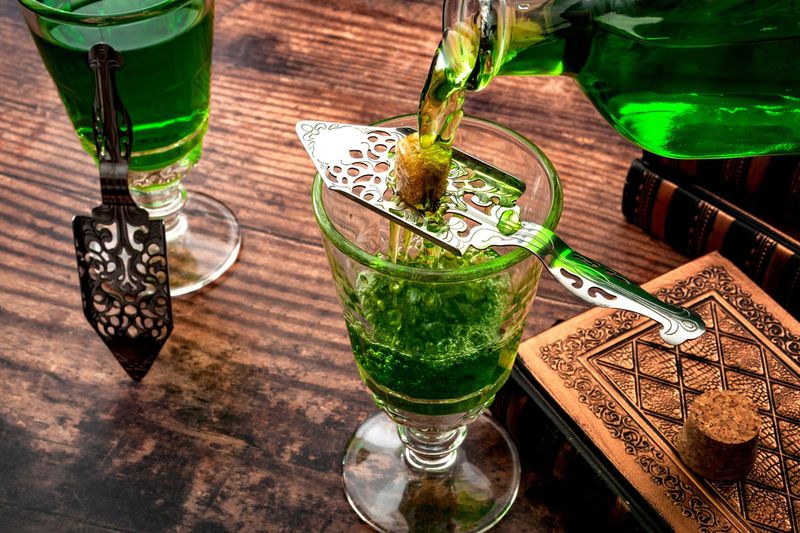In the United States, you may find an array of foods lining the supermarket shelves that are considered controversial or even banned in other parts of the world. These foods often stir debates over health, safety, and culinary standards. Below, we explore seven such foods, each with its unique story and reason for being banned elsewhere. From food dye concerns to health risks, these items continue to be part of American diets while raising eyebrows abroad.
Farmed Salmon

Renowned for its vibrant orange hue, farmed salmon has been at the center of much controversy. In the European Union, concerns over synthetic astaxanthin, used to color the fish, have led to strict regulations. Questions about its impact on human health have fueled debates.
The fish’s farming practices raise environmental alarms, with pollution and disease spreading worries. Despite these issues, farmed salmon remains a staple in U.S. diets, prized for its omega-3 fatty acids. The fish’s journey from farm to table continues amidst divided opinions.
Would it taste as sweet under different circumstances?
Kinder Surprise

The joy of cracking open a Kinder Surprise egg is familiar to many, yet it remains banned in the U.S. due to safety concerns. Under FDA regulations, the toy inside poses a choking risk, which has led to its prohibited status.
In contrast, many countries celebrate the surprise element, considering it a childhood delight. The rich chocolate and hidden toy create a magical experience. Despite its ban, the Kinder Surprise has gained a cult following, with enthusiasts seeking creative ways to enjoy it stateside.
Perhaps it’s the allure of the forbidden that captivates.
Haggis

Scotland’s national dish, haggis, evokes a mixture of curiosity and aversion. Banned in the U.S. since 1971, the prohibition stems from the inclusion of sheep lung, deemed unfit for consumption by American standards.
Traditionally, this savory pudding is celebrated during Burns Night, honoring the poet Robert Burns. Its rich, earthy flavors are a tribute to Scottish culinary heritage. While banned, U.S. residents improvise with lung-free adaptations, keeping the tradition alive.
The dish’s mystique may lie in its rich history and cultural significance, transcending borders.
Foie Gras

Foie gras, synonymous with luxury, faces ethical scrutiny. Its production method, involving force-feeding ducks or geese, has led to bans in several countries, including India and parts of Europe.
The delicate texture and rich taste make it a sought-after delicacy in gourmet circles. Despite controversies, foie gras is still enjoyed in the U.S., where culinary aficionados argue for its place in fine dining.
The debate around foie gras often centers on ethics versus tradition, a culinary stage where luxury meets morality.
Unpasteurized Milk

Raw, unpasteurized milk is a topic of heated discussion. Praised for its purported health benefits, it remains banned in many countries due to safety concerns. In Canada and Australia, strict pasteurization laws aim to prevent bacterial contamination.
Advocates in the U.S. argue for its natural taste and probiotic qualities. The raw milk debate highlights the clash between tradition and modern food safety standards.
Does the risk outweigh the rustic charm, or does nature know best? This controversy continues to churn opinions.
Absinthe

Absinthe, the infamous “green fairy,” dances through history with a reputation for hallucinogenic effects. Once banned across Europe and the U.S., modern absinthe lacks the psychoactive levels of thujone.
France and Switzerland have re-embraced this potent spirit, while the U.S. regulates its production. Absinthe’s allure lies in its mystique and artistic connections, inspiring figures like Van Gogh and Hemingway.
The resurgence of absinthe celebrates both tradition and innovation, a curious blend of past and present.
Sassafras Oil

Once a key ingredient in root beer, sassafras oil was banned by the FDA due to safrole, a potentially carcinogenic compound. The ban hasn’t stopped its use in herbal medicine and flavoring outside the U.S.
Sassafras evokes nostalgia for traditional root beer lovers. Despite the ban, artificial flavorings attempt to replicate its distinctive taste. The oil’s mysterious nature lingers in American folklore, entwining with tales of old.
Would root beer be the same without its original essence? The debate over sassafras oil continues to intrigue.
Leave a comment